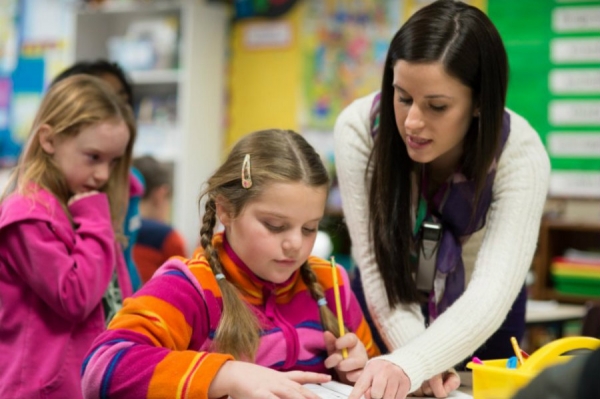It’s been about three months since I resigned from my position as an elementary school principal. A part of the deal with my wife in allowing me to take a “gap year” was that I would get more involved in our daughter’s schooling. You see, I was never able to make many of our daughter’s school events because I was so busy running my own school’s events.
This seemed like a good deal—getting more involved was something I needed to do as a parent, and I now happily volunteer in my daughter’s fifth-grade class every week. Being in the classroom in this capacity offers me an opportunity to see the school from a different perspective, and it’s been a good reminder to me that parents play an important role in a school—a reminder I’d like to pass on to other school leaders.
So, according to this room dad, what are the most important things principals need to do in leading their schools?
4 TIPS FOR SCHOOL LEADERS
- . Be visible: As a parent, I want to see my principal there on campus. I get it—you can’t always be there. You have district meetings, professional development, and things that take you off-site often.
- However, you should make an effort to be out and about when parents are on campus. Be there during drop-off and pickup—you get bonus points if you’re helping open car doors or doing crosswalk duty. If it helps, schedule it on your calendar—and remember to mix it up so you’re around at different places on campus at those times so you see different families.
- If you can’t be there physically, communicate with your community often. Email or call us—I don’t expect you to contact us all personally, of course, but writing or robocalling to share important information is great. Write your newsletter messages—some of us parents really read them. And don’t just communicate the business stuff: Use these tools to let us know more about you. For example, don’t just tell us that there’s no school on Martin Luther King Jr. Day—tell us what this holiday means to you personally. I would love to read that in your principal’s message in January.
- The bottom line is that all of this helps us get to know you, and that’s important since we trust you with our children.
- . Don’t just be visible, be good with kids: If kids are truly the most important thing to you—which they should be—it should be crystal clear through your actions. I love seeing my daughter’s principal interacting with kids.
- I know it’s hard, but try to know students’ names and a little bit about each one. Play with them, laugh with them, and connect with them. As a principal, I used to send each child a birthday postcard from school with a handwritten note and a reminder to come to the office to get their birthday pencil. It was a small gesture, but kids loved getting the postcard in the mail. It was all a part of building relationships with kids and building a culture of caring at the school.
- I don’t need to be at school to know that you have a good relationship with kids. When my kid comes home and tells me that you played soccer with her and her friends or that you came to the classroom to read with them, that tells me you’re building connections. When I see these types of interactions between the principal and students, I know that kids come first.
- . Don’t just be good with kids, be good with the adults: When you’re walking around campus, talk to parents. Ask us how things are going. Get some feedback and ideas on how to make our school better.
- When I see teachers and staff at my daughter’s school, I hope to get a sense that they feel supported and are able to keep focused on the kids. Teaching is a stressful job, and there’s a lot to complain about—that’s why getting support from the leader of the school is so important. I want my kid’s teacher to be primarily focused on doing her best job teaching, not being overwhelmed with administrative or disciplinary issues.
- Your relationships with the adults on campus—both parents and staff—have a direct impact on my child’s learning, so they matter to me.
- . Oh, and one more thing: Notice that I haven’t mentioned anything about how parents want their principals to be able to write excellent SMART goals or comprehensive school plans. This comes with the territory for principals, and I know you have it all on your to-do list.
- But as a parent, I just don’t care about that. I’m not saying that stuff isn’t important—I know it’s definitely important to your district office and the state department of education. I’m just saying that if you’re not focused on the kids and on building relationships, it doesn’t matter if you have the best SMART goals in the history of education. As a parent, I just want to know that my child is important to you.
By Don Vu








